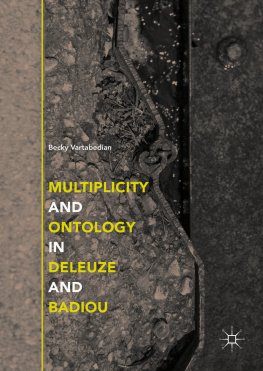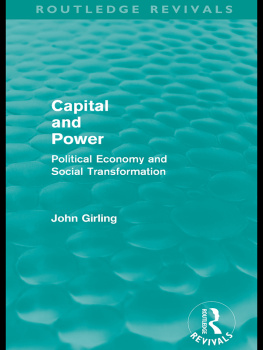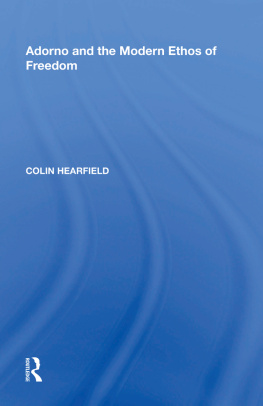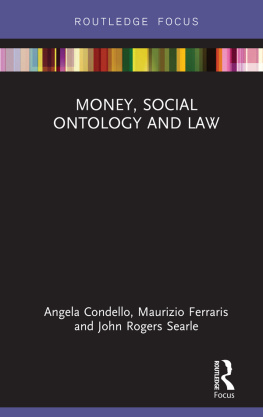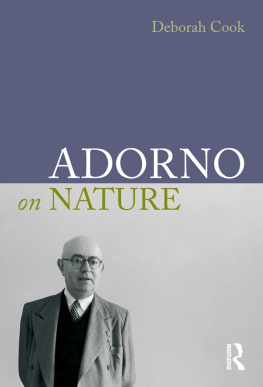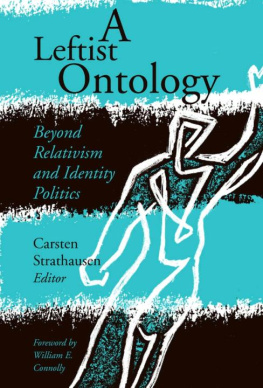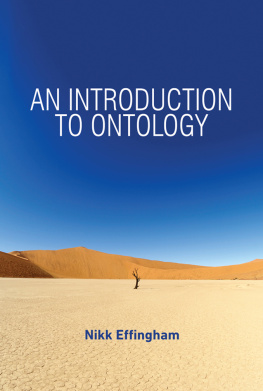ONTOLOGICAL POLITICS IN A DISPOSABLE WORLD
Ontological Politics in a Disposable World provides a rich and nuanced account of how society, scientific knowledge, and nature are being transformed in neoliberal times.
Charles Thorpe, University of California, San Diego, USA
Theory, Technology and Society
Series Editor: Ross Abbinnett, University of Birmingham, UK
Theory, Technology and Society presents the latest work in social, cultural and political theory, which considers the impact of new technologies on social, economic and political relationships. Central to the series are the elucidation of new theories of the humanity-technology relationship, the ethical implications of techno-scientific innovation, and the identification of unforeseen effects which are emerging from the techno-scientific organization of society.
With particular interest in questions of gender relations, the body, virtuality, penality, work, aesthetics, urban space, surveillance, governance and the environment, the series encourages work that seeks to determine the nature of the social consequences that have followed the deployment of new technologies, investigate the increasingly complex relationship between the human and the technological, or addresses the ethical and political questions arising from the constant transformation and manipulation of humanity.
Other titles in this series
Urban Constellations
Spaces of Cultural Regeneration in Post-Industrial Britain
Zo Thompson
ISBN 978 1 4724 2722 9
Eventful Bodies
The Cosmopolitics of Illness
Michael Schillmeier
ISBN 978 1 4094 4982 9
Genetics as Social Practice
Transdisciplinary Views on Science and Culture
Edited by Barbara Prainsack, Silke Schicktanz, Gabriele Werner-Felmayer
ISBN 978 1 4094 5548 6
The Visualised Foetus
A Cultural and Political Analysis of Ultrasound Imagery
Julie Roberts
ISBN 978 1 4094 2939 5
Ontological Politics in a Disposable World
The New Mastery of Nature
LUIGI PELLIZZONI
University of Trieste, Italy
ASHGATE
Luigi Pellizzoni 2015
All rights reserved. No part of this publication may be reproduced, stored in a retrieval system or transmitted in any form or by any means, electronic, mechanical, photocopying, recording or otherwise without the prior permission of the publisher.
Luigi Pellizzoni has asserted his right under the Copyright, Designs and Patents Act, 1988, to be identified as the author of this work.
Published by
Ashgate Publishing Limited
Wey Court East
Union Road
Farnham
Surrey, GU9 7PT
England
Ashgate Publishing Company
110 Cherry Street
Suite 3-1
Burlington, VT 05401-3818
USA
www.ashgate.com
British Library Cataloguing in Publication Data
A catalogue record for this book is available from the British Library.
Library of Congress Cataloging-in-Publication Data has been applied for
ISBN 9781472434944 (hbk)
ISBN 9781472434951 (ebk-PDF)
ISBN 9781472434968 (ebk-ePUB)
For my sons, Luca and Marco:
May they live in a reconciled world
Contents
Introduction
Human presence on the planet looks today more troublesome than ever. In spite of countless warnings and interventions, ecological issues show few signs of overall improvement. In many respects they rather seem to be worsening.
In 2000, United Nations Secretary-General Kofi Annan called for a Millennium Ecosystem Assessment, with the objective of evaluating the impact of ecosystem change on human well-being, as well as of developing a scientific basis for action. The assessment began in 2001 and lasted four years, with the involvement of more than 1,300 experts from 95 countries. It established that anthropic pressures have changed ecosystems more extensively and rapidly in the previous 50 years than at any other time in human history. Population dynamics, contamination of ecosystems and extensive biodiversity loss (especially deforestation) can engender it was argued a host of unwelcome consequences, including less obvious ones, such as the diffusion of infectious diseases like yellow fever or dengue.
Years later the picture looks the same. Take climate change the most prominent issue both at public opinion and policy level. According to the UN Environment Programmes Emissions Gap Report 2012,
This approach is critical towards the carbon markets solutions promoted by the Kyoto Protocol (on which see points to conserving mangroves, seagrasses and salt marsh grasses, since this coastal vegetation (dubbed blue carbon) sequesters carbon up to 100 times faster and more permanently than terrestrial forests. Therefore carbon offsets based on the protection and restoration of coastal vegetation could be far more cost effective than current approaches focussed on trees. Additional benefits would be enjoyed by fisheries, tourism and reduced coastal erosion.
Other proposals for improving the effectiveness of climate policy include climate-smart agriculture. This concept, advanced by FAO in 2010, seeks to integrate the three dimensions of sustainable development (economic, social and environmental) by jointly addressing food security and climate challenges, according to three pillars: increasing agricultural productivity and incomes;
A major warning comes from the International Energy Agency (IEA).) is widely deployed. In other words, two-thirds of the worlds proven fossil fuel reserves should remain underground. A self-restraint that, looking at past and present trends, is hardly likely to come true.
In sum, there is evidence of growing intensity of exploitation of natural resources, increasing seriousness of ecological problems and failure or insufficiency of environmental policies. Confronted with this situation the social sciences have of course not remained silent. Their contribution to environmental science and policy-making, however, is notoriously weak. Human dimensions of environmental change are acknowledged and included in a number of programs, yet mostly under the assumption that people and the biophysical world can best be analysed and modified using similar concepts and protocols (for example, agent-based models). A single, seamless concept of integrated knowledge is thereby posited as both possible and desirable (Castree et al. 2014: 764). Scholarship in social sciences and humanities is either urged to adopt quantitative, behavioural approaches that fit the bill of a supposedly objective representation, at the price of missing a good deal of its capacity to account for the many ways humans relate with the biophysical world in terms of meanings, goals, means, power, violence and inequality; or, if other approaches are selected (qualitative, hermeneutic, critical), they are marginalized as irrelevant or as aiming at an unduly politicization of technical matters and factual research. The science wars against social science inquiry into scientific practices (Sokal and Bricmont 1998), are a good example in this sense (see ).
This problematic resonates in Michael Redclifts assessment of existing and potential contributions of sociology to the ecological issue, as traversed by two main lines of division. The first is between realism and constructionism. On one side we have those who take an approach grounded in the achievements of science, a broadly critical realist position, and [on the other] those who approach the environment from the perspective of social constructivism, who locate themselves within a more hermeneutic tradition. Their approach does not deny the materiality of non-human entities (nature) but argues that we cannot separate their material existence from our knowledge of them/it (Redclift 2009: 374). In short, while the first approach takes ecological issues as self-evident or scientifically-ascertained facts, the second focusses on the dynamics of problem-definition and solution-devising, asking whether and how humans relationship with nature changes accordingly.
Next page

